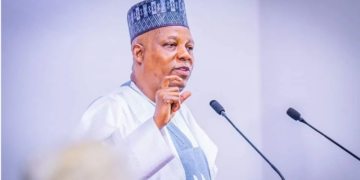Stakeholders in the education sector, who attended a workshop in Kaduna, identified teacher reforms as necessary for improving the quality of education, saying that teachers are central to the desired rise in the standard of education in Nigeria.
The one-day workshop on “Teacher Issues in Conflict and Protracted Crisis Settings: Documenting the Effectiveness of the Kaduna Teacher Reforms”, was organised by the International Rescue Committee (IRC) to share findings in the Kaduna teacher reforms policy as one of the researches conducted under the Education Research in Conflict and protracted Crisis (ERICC).
The research into education in conflict and protracted crisis was funded by the UK government through the Foreign and Commonwealth Development Office (FCDO) and covers about seven countries globally including South Sudan, Myanmar, Syria, Jordan, Lebanon and Bangladesh and Nigeria.
As a part of its moves towards prioritizing the education sector, the Kaduna State Government has taken a significant step towards transforming teachers through the Kaduna teacher reforms policy.
Speaking at the event, the Director General of the National Teacher Institute (NTI), Professor Garba Maitafsir, who chaired the event, said the problem with education in Nigeria is the educators, not the education system.
He therefore said that if the teachers as educators are reformed, the education sector will attain the desired outcomes and meet the set standards.
Also speaking at the event, ERICC’s Regional Research Director, Prof. Oladele Akogun argued that, aside, the challenge with the educators (teachers), Nigeria also needs to check its education policies, adding that, the country cannot achieve its desired education standards if policies and practices are at variance.
He said, a situation where the country has a beautiful policy of free and compulsory education up to 18 years, but in practice it is not implemented cannot yield the desired result.
Speaking on the challenges of teachers, Professor Akogun said teachers must be handled carefully the way Medical Doctors are treated, arguing that the result of handling teachers shabbily is more deadly for a nation than that of doctors, as the repercussions affect entire generations.
We’ve got the edge. Get real-time reports, breaking scoops, and exclusive angles delivered straight to your phone. Don’t settle for stale news. Join LEADERSHIP NEWS on WhatsApp for 24/7 updates →
Join Our WhatsApp Channel









